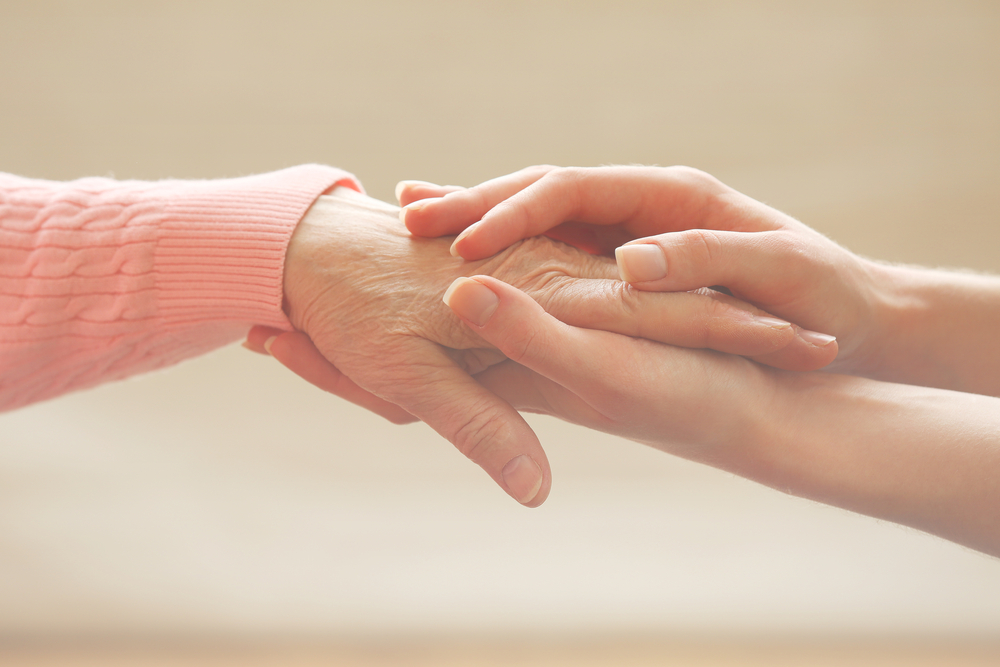
Though we all know death and the loss of loved ones is a reality of getting older, it doesn’t mean that it gets any easier for those grieving a loss. Individuals will cope with grief and loss in different ways and in different timeframes. Offering support during these difficult life changes can help your loved one find their way through the grieving process. Here are ten ways you can help.
Ten Ways to Help a Loved One Cope with Grief and Loss
by Amy Natt, MS, CMC, CSA – Aging Life Care Association™ Member
Q: My mother had a big change last year. She became a widow and her father passed away within six months of each other. Both were unexpected. Now, she lives with our family. While she has her own living space, I still want her to get back to her life. What are some ways we can help her adapt to her new normal and get on with her life as a single person again?
A. The loss of a spouse, parent, or loved one is never easy, but having both happen in a short time period can be especially challenging. She needs to go through the grieving process while learning to live her life as a single person. Typically after a loss, it is important that the person has time to grieve and not make any significant decisions or changes right away. She has to find her new normal and refocus time and energy on herself.
A good starting place is to determine what her support network is. This may be family, friends, church, and sometimes social groups she is affiliated with. All of these connections will provide a resource for her. It may be someone to talk to, an ear to listen, or opportunities to reconnect with people. You mentioned that she is residing with your family, so it will be important to have some boundaries in place and for everyone in the house to know what those are. You also have an opportunity to monitor for signs that she may be having trouble adjusting or dealing with losses she has experienced. If you have concerns, it may be appropriate to encourage her to speak to a counselor who specializes in grief counseling. As she goes through this process, here are a few things that might help her get back to her life:
1. Create a journal. Write down things of interest, past hobbies and activities. Look for opportunities to reconnect to those activities.
2. Make a list of her support network. Identify people she is comfortable being around during this transition.
3. Update the address book. Get current contact information for other family members and friends.Talk about her short- and long-term goals. A short-term goal might be to get back to an old routine. A long-term goal might be to plan a trip with one of her friends.
4. Talk about her short- and long-term goals. A short-term goal might be to get back to an old routine. A long-term goal might be to plan a trip with one of her friends.
5. Create a calendar of community events and activities that might be of interest. Talk about it weekly and offer to go with her to some of them, until she is comfortable going alone.
6. Consider joining a grief support group. A support group provides an outlet to talk about how she is feeling and to connect to others who may have a similar experience.
7. Create a bucket list. List new things she would like to experience in her life.
8. Explore courses offered through local community colleges or recreation centers. These are often low-cost opportunities for learning.
9. Encourage exercise and a healthy lifestyle. If we feel better on the inside, we are more likely to want to participate in things on the outside.
10. Let her know that it is OK to grieve. Provide encouragement and opportunity, but do not push her to do things too quickly.
Each person experiences loss differently. She has lost a spouse, a father, the home where she lived, her routine, a familiar environment, and her sense of connection to a partner to share life experiences. Encourage her by providing support and opportunities to build this next chapter of her life.
Aging Life Care Professionals™ can help you find the right support services and resources for grief support. Find an expert to work with by visiting aginglifecare.org.
About the author: Amy Natt, MS, CMC, CSA is the CEO of Aging Outreach Services in Southern Pines, North Carolina. Amy also serves as the President of the Southeast Chapter of the Aging Life Care Association. She can be reached at amyn@agingoutreachservices.com.
This blog is for informational purposes only and does not constitute, nor is it intended to be a substitute for, professional advice, diagnosis, or treatment. Information on this blog does not necessarily reflect official positions of the Aging Life Care Association™ and is provided “as is” without warranty. Always consult with a qualified professional with any particular questions you may have regarding your or a family member’s needs.
Source: ALCA Blog